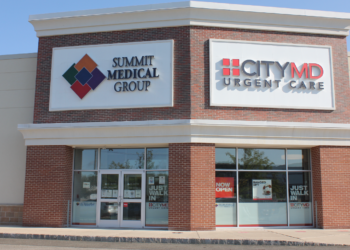
It was County Executive Scott Vanderhoef”™s 17th annual address to Rockland, but the views expressed  last week resounded with the same challenges facing his counterparts in other counties. ?Vanderhoef  told members of the Rockland Legislature that relying on the state or federal government for relief was essentially an exercise in frustration and that Albany”™s dysfunction has left the state”™s finances and credibility at an all-time low. ?Vanderhoef listed a number of measures Rockland has taken to reduce spending and become more self-sufficient, but said more needs to be done, particularly with Medicaid.
Medicaid costs Rockland homeowners “110 percent of our property taxes … let the state take the program over. Once they understand this cost … perhaps they will be able to do something about it … the abused and misused program needs a total overhaul.”  ?Vanderhoef listed the measures Rockland has taken to rein in spending, but said close-to-the-bone cost-cutting measures will not be enough to keep the county viable. He announced the creation of a Contract Agency Task Force to determine where nonprofits can trim spending or consolidate, asking private members of the community to become involved.?One of his  biggest concerns was the fate of the new Tappan Zee Bridge, the mainline between Rockland and Westchester. Millions have been spent to study replacing the crumbling span. The proposed $16 billion infrastructure plan for the new bridge includes a mass transit component. One drawback: there is no money to build it.  ?“It”™s time to look to the private sector to get this project done,” Vanderhoef said. “I recommend and suggest the New York state Legislature pass a law allowing private enterprise to invest in capital projects like the Tappan Zee Bridge … the state would monitor and regulate the private enterprise. I ask them to consider this legislation.”?Rockland”™s current unemployment rate is 7.5 percent, with 11,000 people unemployed, Vanderhoef said.
Â
The loss of a 500-unit housing project K. Hovnanian planned for Orangeburg at the Rockland Psychiatric Center, along with layoffs at Pfizer and U.S. Gypsum, have been difficult to deal with, he said.?However, he is encouraged by Pfizer”™s conversion of its Pearl River facility to one of its five national research and development centers, saying the potential for creating new jobs or having people relocating to Rockland was a positive move. He also asked the Rockland Economic Development Corp. to find a new use for the county property Hovnanian has withdrawn its project from. He credited the Empire Zone, scheduled to sunset in June, in helping the county attract four companies from New Jersey, saying more than 400 new jobs will be created. ?Water is another crisis facing the tiny county.
“Rockland uses 49 million gallons a day,” said Vanderhoef,  “and despite water conservation, we need to do more.” United Water has proposed a desalinization plant to draw water from the Hudson and make it potable. “People have legitimate questions about the quality of that drinking water, so I urge our towns and villages to hold meetings to discuss this issue and get our community members  involved.”


















